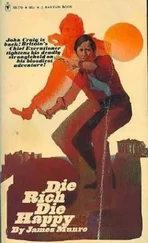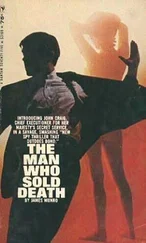James Munro - The Innocent Bystanders
Здесь есть возможность читать онлайн «James Munro - The Innocent Bystanders» весь текст электронной книги совершенно бесплатно (целиком полную версию без сокращений). В некоторых случаях можно слушать аудио, скачать через торрент в формате fb2 и присутствует краткое содержание. Жанр: Старинная литература, на английском языке. Описание произведения, (предисловие) а так же отзывы посетителей доступны на портале библиотеки ЛибКат.
- Название:The Innocent Bystanders
- Автор:
- Жанр:
- Год:неизвестен
- ISBN:нет данных
- Рейтинг книги:4 / 5. Голосов: 1
-
Избранное:Добавить в избранное
- Отзывы:
-
Ваша оценка:
- 80
- 1
- 2
- 3
- 4
- 5
The Innocent Bystanders: краткое содержание, описание и аннотация
Предлагаем к чтению аннотацию, описание, краткое содержание или предисловие (зависит от того, что написал сам автор книги «The Innocent Bystanders»). Если вы не нашли необходимую информацию о книге — напишите в комментариях, мы постараемся отыскать её.
The Innocent Bystanders — читать онлайн бесплатно полную книгу (весь текст) целиком
Ниже представлен текст книги, разбитый по страницам. Система сохранения места последней прочитанной страницы, позволяет с удобством читать онлайн бесплатно книгу «The Innocent Bystanders», без необходимости каждый раз заново искать на чём Вы остановились. Поставьте закладку, и сможете в любой момент перейти на страницу, на которой закончили чтение.
Интервал:
Закладка:
"Sods," Craig said aloud. "Bloody sods." And the words came out in the hard, flat accent of his childhood. And as he said them, he remembered. There was a way.
Getting there involved two tubes, a taxi, and three buses, and time was important. But even more important was to know you weren't followed, and by the time he reached the boatyard he was sure. It was in Wapping, behind a dirty back wall and a sagging door that waited in crumbling patience for the demolition squad. But inside it was neat, tidy, craftsmanlike, filled with every kind of pleasure craft from dinghys to trimarans, and every one built with patient skill. Arthur Candlish did well out of sailing boats, and paid his taxes on them. His other incomes were all tax-free. He listened in silence, a slow, big-boned man of fifty, as Craig talked. Candlish's slowness was not stupidity, but it helped when others thought it was. Craig told him his life was in danger, and he had to get away.
"Who's after you?" Candlish asked. "The coppers?"
"No," said Craig. "Not the coppers. These lads mean it." And Candlish smiled.
"You brought a feller here once," he said. "Big fat feller. I did a job for you. Is that him?"
Craig nodded, and Candlish sighed. "Ill charge you . nowt, John," he said. "But there'll be others, and it'll cost money to beat him."
"How much?" asked Craig.
"A thousand quid."
"Fifteen hundred," said Craig. "Ill pay in dollars. You're entitled to your share."
"I couldn't take money off ye," said Candlish. "I knew your da." He paused, and Craig marveled for the hundredth time that twenty years of London hadn't modified Candlish's voice in the slightest, so that he had only to speak to carry Craig back at once to his childhood: the cobbled streets, the gulls and docks, the cold, gray-glittering sea.
"Where?" Candlish asked, and Craig had dreaded the question. "Ireland," he said.
Candlish went out and Craig saw him dismissing his men, then at the telephone. There was no other way. He'd realized it there in Regent's Park, when he looked at Joanna Benson's view. He couldn't kill himself. Not now. Maybe if he'd been left alone and got drunk enough he'd have done it then. Maybe. But he couldn't try again. And he couldn't just drift, waiting for Loomis to find him. All he could do was finish the job, and do it well enough for Loomis to lay off him till the next time. That meant going back to the States and finding Marcus Kaplan—and getting more information. There had to be more. That was why the Americans had him, but he could be found.
Candlish came back. "We'd better make a start," he said.
He rose and put on a bowler hat of antique design that made him look like a bookmaker with a taste for religion.
"That fat friend of yours won't have forgotten me," he said.
Loomis missed him by seven minutes. When he arrived the boatyard was locked up tight, and a sign outside said closed till further notice. Nobody had seen Craig, nobody had seen Candlish. The staff—three men and a lad —were on holiday, and Mr. Candlish had probably gone up North to see his relatives . . .
Mr. Candlish, in fact, was driving to Holyhead in a fish lorry, and Craig went with him as his mate. They stopped in the suburbs for Craig to have his photograph taken, and were met outside Holyhead by a young man in an Aston Martin DB6 who had Craig's new passport—not too new, not too blank, the American visa exactly as it should be. Craig found that his name was John Adams, and that he was a general dealer.
"Useful that," said the young man. "You can deal in anything you like. Early Picassos or army surplus. Two hundred and fifty quid please."
"Send me the bill," Candlish said.
"Anything you say, Mr. Candlish."
The Aston Martin roared and disappeared, nervous at being so far from London, and Candlish drove on down to the docks. In place of the fishing boat Craig had expected there was an elegant power launch complete with owners—a thin Manchester cotton broker and his fat Sal-ford wife—Craig and Candlish were the crew.
"Six hundred quid they want—and a hundred and fifty for the lorry," said Candlish. "It's a bloody scandal."
There was satisfaction in the thought that A. J. Scott-Saunders had provided the money.
They sailed at once, and made for Cork. There was relief in handling a boat again, the relief of knowing that one skill at least had not deserted him—and the realization of what waited for him in the States killed his need for alcohol. The fat lady from Salford could cook, too, and the weather was clear and bright. The trip at least was bearable, and more than bearable when Arthur started to talk about the old days, about the father Craig could scarcely remember. He took the wheel while Arthur slept, and when it was his turn, found that he too could sleep. Four healing hours that left him alert, ready, as the boat ran into a small, empty cove and Candlish and Craig prepared to go ashore in the dinghy. The thin man and fat woman said nothing, but their eyes on Craig were hungry. Money was going ashore. A lot of money.
Craig took the oars and Candlish cast off. The sea gleamed in the morning sunlight, bright and diamond-hard, without the Mediterranean tenderness Craig knew so well.
"You'll have to watch those two," said Craig.
"I'll watch them." Candlish's voice showed no trace of worry. "They're a bit scared of me, John."
Craig was still laughing as the dinghy beached. They walked ashore dry shod.
"Straight up to those cliffs," said Candlish. "Get to the top and you'll find a bit of a path. Follow that and you'll come to a farmhouse. There'll be a Volkswagen there. Take it."
"Stolen?"
Candlish chuckled. "Your own car, lad. All in order.
There's papers to prove it. Just leave it where you want. When the police find it—you'll be miles away." It wasn't a question. He had no doubts of Craig's ability. "Good luck, John."
Craig scrambled ashore. "Thanks," he said. "So long."
Candlish watched as Craig went up the beach to the cliff. A good lad. A hard one to get on the wrong side of. He touched the inside of his jacket, and the hundred-dollar bills crackled like music. That fat bitch would be happy when he paid her. Slow and easy he rowed back to the launch.
Craig found the Volkswagen waiting, a road map open on the front seat, and drove at once to Cork and breakfast in a hotel. Bacon and eggs and tea, and a waiter who talked because he felt like it, because it was a beautiful morning. Craig went next to a travel agency, and then bought clothes, a suitcase, shoes, and set off for Shannon across the cheerful Irish landscape, the improbable green grass and whitewashed cabins unreal as a film set. And why not? The Irish were all actors anyway. That didn't make them any less efficient when they wanted to be, Craig thought, and drove the Volkswagen with care. He daren't risk an accident.
At Shannon, Ireland stopped and Mid Atlantica began. Even the tea tasted different, at one with the plastic and insurance machines and flight calls. Craig boarded an Aer Lingus Boeing at five o'clock. Nine hours later he was in Chicago, and it was eight p.m. Two hours after that he was at Kennedy, and it was eleven p.m. He went into New York by bus, and found a hotel in the West Forties in downtown Manhattan, and slept for fourteen hours. When he awoke it was time to find Miss Loman.
He rang Marcus Kaplan Inc. and asked for him by name. When a secretary's voice told him he was on holiday, he said:
"My name is Adams. John Adams. I had rather hoped to see Mr. Kaplan."
"I'm sorry, Mr. Adams. We have no way of contacting him right now."
"Oh dear," said Craig, very British. "It's about claypigeon shooting. What I believe you call skeet shooting over here."
"That's right," said the girl, and the voice was weary now, long-suffering—a secretary too often involved in her boss's obsession. Skeet shooting to Kaplan was like a fix to a junkie. She didn't dare get in the way. Get off the hook, her instincts said. Fast.
Читать дальшеИнтервал:
Закладка:
Похожие книги на «The Innocent Bystanders»
Представляем Вашему вниманию похожие книги на «The Innocent Bystanders» списком для выбора. Мы отобрали схожую по названию и смыслу литературу в надежде предоставить читателям больше вариантов отыскать новые, интересные, ещё непрочитанные произведения.
Обсуждение, отзывы о книге «The Innocent Bystanders» и просто собственные мнения читателей. Оставьте ваши комментарии, напишите, что Вы думаете о произведении, его смысле или главных героях. Укажите что конкретно понравилось, а что нет, и почему Вы так считаете.












